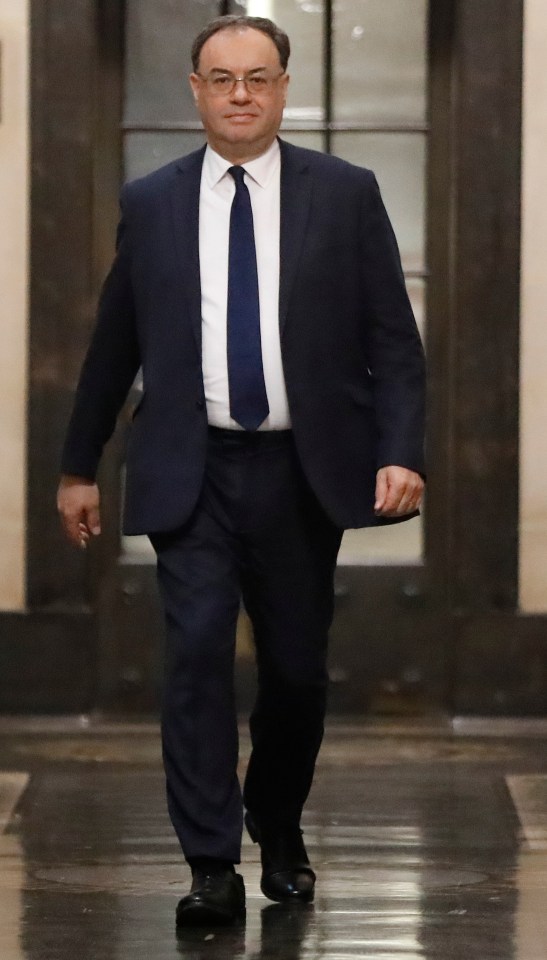LENDERS have been slashing mortgage rates, bringing relief for millions of borrowers.
The Bank of England, led by Governor Andrew Bailey, has already made two cuts to its base rate this year and it is widely expected that more will follow.
It means that interest rates on home loans could fall further.
Sun Money journalist Emily Mee asked some of the country’s top mortgage brokers to answer all your burning questions.
Here’s everything you need to know, whether you’re buying for the first time, moving house or coming to the end of your current home- loan deal.
WHY ARE MORTGAGE RATES FALLING?
LENDERS have been dropping rates in the UK since US President Donald Trump imposed huge import tariffs last month.
The move triggered economic shockwaves across the globe but an unexpected side effect was a boost for British borrowers.
That’s because the turmoil has led to markets predicting the Bank of England will further cut its base rate — which influences rates set by mortgage lenders.
Markets are pricing in four base rate cuts this year as the Bank seeks to avoid a downturn caused by the trade wars.
The base rate has already dropped twice in 2025 from 4.75 per cent to 4.5 per cent in February then last week to 4.25 per cent.
All major lenders are now offering fixed mortgage deals with an interest rate of less than four per cent.
SHOULD YOU WAIT FOR EVEN LOWER RATES?
BROKERS caution against trying to time the market.
David Hollingworth of L&C Mortgages, and Nicholas Mendes at John Charcol, both believe rates could fall further this year.
But they say rates have moved based on what economists expect to happen down the line rather than in response to base rate cuts. So current mortgage rates have already factored in base rate predictions.
Mendes says: “Waiting for rates to hit their lowest point might save a little on monthly repayments but could also mean missing out on the right property, especially if house prices rise or competition increases.”
IS NOW A GOOD TIME TO BUY?
HOUSE prices are expected to rise by between one and four per cent this year, according to forecasts.
But experts warn it’s not worth obsessing with short-term movements in prices when buying a home you plan to live in for years.
Aaron Strutt, of broker Trinity Financial, says: “It is hard to guess the mortgage and property markets, so if you find a nice property and affordable mortgage it is probably a good time to get on the housing ladder.”
But brokers agree it’s currently a buyers’ market with mortgage rates falling, plenty of homes coming up for sale and lenders relaxing some restrictions.
A good mortgage adviser will monitor rate movements for you — and if better rates become available while you’re in the process of buying, most lenders will let you swap to them before you complete on your purchase.
WHAT TYPE OF MORTGAGE IS BEST FOR YOU?
TWO main types of mortgage are fixed rate and tracker.
The vast majority of borrowers choose fixed rates, where the interest rate is set for a number of years. Two and five-year terms are most common but you can also get 15 year deals.
Tracker mortgages are more unpredictable, as they go up and down in line with changes to the Bank of England base rate, plus a set amount.
So with the base rate currently 4.25 per cent, if your tracker is “base rate plus one per cent”, you would pay 5.25 per cent.
As the base rate is expected to fall further, David Hollingworth believes these types of mortgages will become more popular. They are more likely to be free of early repayment penalties so could give more flexibility.
You might be able to take out a tracker mortgage now then switch to a better fixed rate later on. But Hollingworth warns you need to be comfortable with the risk that rates could rise again, and budget for this.
Mendes says you can usually borrow more if you opt for a five-year fixed rate rather than a two-year fix or tracker deal.
Fixed rates are likely to remain the most popular choice.
Hollingworth says: “They not only offer the lowest rates as things stand but give borrowers certainty their payments won’t shift as rates fluctuate.”
HOW LONG SHOULD YOU FIX FOR?
AGAIN, this will likely be down to personal circumstances, but most brokers we spoke to said five-year fixes are a good option.
Craig Fish, director at Lodestone Mortgages and Protection, says: “They give peace of mind, stable payments and breathing space to deal with the unexpected costs that come with owning a home.”
Aaron Strutt says first-time buyers often take two-year deals if buying with a small deposit, in the hope they can get a better deal in a few years’ time.
HOW CAN YOU GET THE BEST DEAL?
WHEN rates are constantly changing, advice from a broker could be crucial. It’s possible to go it alone, using price comparison websites, but brokers can help you get deals not available to borrowers who apply directly.
It is not just about the lowest rate — a broker can help find the lender most likely to give the sum you need. Some advisers don’t charge a fee, as they are paid commission by lenders.
Hollingworth says: “Advisers will help to tailor the mortgage to your needs, taking account of fees and criteria as well.”
Ask friends or family for recommendations or use unbiased. co.uk and read reviews.
Waiting for lower rates might save a little…but you could miss out on the right property
Nicholas Mendes at John Charcol
WHAT ABOUT FIRST-TIME BUYERS?
SAVING a big enough deposit and securing a mortgage large enough to afford a property are the toughest challenges for most first-time buyers.
Even if you are currently paying more in rent than you would be on a mortgage, you still might not qualify for the loan. But lenders have been tweaking rules to try and help first-time buyers.
HSBC says changes to the way it assesses how much applicants can afford could allow buyers to borrow an extra £39,000 on average.
Halifax and Santander have also relaxed rules recently.
Mendes says: “If the higher borrowing allows you to buy the right home in a good area, it might be worth considering, but don’t stretch yourself to the point where a small change could cause financial stress.”
For those struggling to save a deposit, Skipton Building Society does not require one for its Track Record mortgage, which uses borrowers’ past history of paying rent to help determine what they can borrow.
And broker-only lender Accord has a first-time buyers’ mortgage that only needs a £5,000 deposit.
Best deals available
TWO YEARS:
- 3.87% Barclays, 60% LTV, min fee £899
- 3.95% Barclays, 75% LTV, min fee £899
- 4.18% Barclays, 75% LTV, no fee
- 4.23% Furness Building Society, 80% LTV, £999
FIVE YEARS:
- 3.89% Barclays, 60% LTV, £899 fee
- 4.1% Barclays, 75% LTV, £899 fee
- 4.24% HSBC, 80% LTV, £999 fee
- 4.39% HSBC, 90% LTV, £999 fee
WHAT TO DO IF MORTGAGE DEAL IS ENDING SOON
OUR experts say you should start looking for a new deal three to six months before your current term ends.
It’s vital to avoid rolling on to your lender’s standard variable rate, which happens if you don’t move to a new deal.
Plus, if rates keep improving you can still review your deal before you complete.
WHAT ARE YOUR OPTIONS IF MOVING HOUSE?
CHECK if you are tied into your current mortgage and if there’s an “early repayment charge” when switching to a new deal.
You can avoid the penalty by transferring the mortgage to the new property, known as porting.
To afford your new property you might need to apply for a top-up from your current lender.
Mendes says in some cases you might be better off paying the early-repayment charge and taking a new deal, especially if your current rate is high or your finances have improved.
Average repayments
For a £250,000 mortgage over 25 years
Best two-year fixed: 3.87% = £1,301.71 pm
Best five-year fixed: 5.89% = £1,304.46 pm
SVR (standard revert rate): 7.58% = £1,860 pm
Source: MoneyFacts best buys













